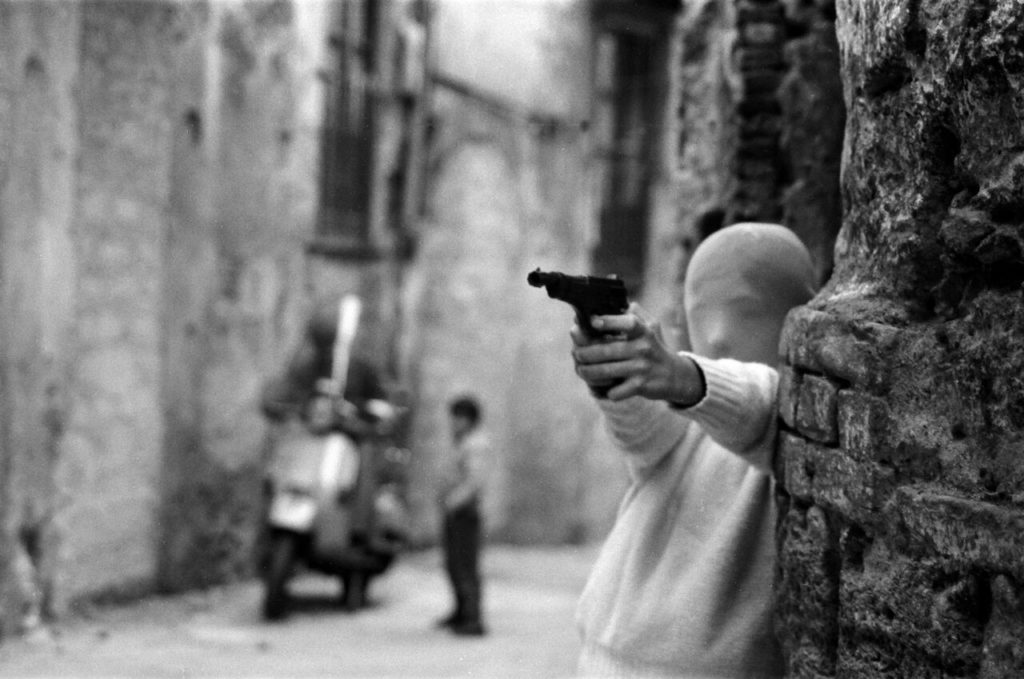Kim Longinotto is an award-winning documentarian known for making films about female outsiders and rebels. Among her 20 films, she has followed a teenager struggling to become a wrestling star in 2000’s “Gaea Girls,” challenged the tradition of female genital mutilation in Kenya in 2002’s “The Day I Will Never Forget,” and told the story of an Indian Muslim woman who smuggled poetry out to the world while locked up by her family in 2013’s “Salma.” Longinotto’s most recent film, 2015’s “Dreamcatcher,” looks at the life and work of a former sex worker who rescues Chicago girls from the street.
“Shooting the Mafia” will premiere at the 2019 Sundance Film Festival on January 25.
W&H: Describe the film for us in your own words.
KL: The film is about Letizia Battaglia, a Sicilian photographer who dared to take pictures of the Mafia. Over 19 years, she documented their crimes and showed how they had dominated and traumatized a whole country.
W&H: What drew you to this story?
KL: I love telling stories of survivors and of rebels. Letizia challenged everything: her society’s culture, her expected role in society, and the Mafia themselves.
W&H: What do you want people to think about when they are leaving the theater?
KL: It would be great if the audience feels proud of the brave people who dared to stand up to the Mafia. The Mafia were ruling by brute force, [but] people had dreams of justice and hope
W&H: What was the biggest challenge in making the film?
KL: It’s a huge and fascinating story which could have been told a thousand different ways. The challenge was to weave Letizia’s story into the history of her country. It was a film made in the edit room.
The film’s editor, Ollie Huddleston, and I are used to making observational films; this film includes classic Italian movies, on-the-spot news reports, family archive, and old Sicilian films. We worked with Cristina Rajolam, who kept going to RAI (Italian TV) and sifting through hundreds of hours of archive, and Clare Stronge, who trawled through untold news and current affairs films from many different sources.
W&H: How did you get your film funded? Share some insights into how you got the film made.
KL: The main funders were Impact Partners, who funded my last film, “Dreamcatcher,” and Screen Ireland. Then Laura Poitras and Charlotte Cook from Field of Vision gave us an additional amount.
W&H: What inspired you to become a filmmaker?
KL: I wanted to tell stories. I intended to write novels but realized that I wasn’t good enough.
W&H: What’s the best and worst advice you’ve received?
KL: The worst advice I got was at film school. My camera tutor said, “It’s a battle between sound and camera. Make sure you always get the best picture.” I’ve always seen filmmaking as a team thing.
W&H: What advice do you have for other female directors?
KL: I would never give advice. We’re all so very different. Each person will make a different film. Our films reflect who we are.
W&H: Name your favorite woman-directed film and why.
KL: Probably Moufida Tlatli’s “The Silences of the Palace.” It’s a very old film. I watched it ages ago and it really stayed with me. I’m not sure what I’d make of it now.
[I’d also like to mention] Lukas Moodysson’s “Fucking Åmål.” I know it’s made by a man but it really feels like a woman’s film.
W&H: It’s been a little over a year since the reckoning in Hollywood and the global film industry began. What differences have you noticed since the #MeToo and #TimesUp movements launched?
KL: I was just reading about the demonstrations in India. I hope the new feeling of confidence will spread so it’s not just in Hollywood.







